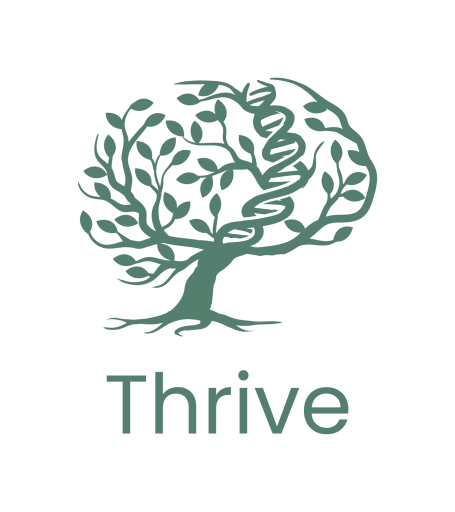Thrive Psychological Services
What is ADHD?
ADHD stands for Attention-Deficit/Hyperactivity Disorder. It is a neurodevelopmental difference that affects a person's ability to focus, control impulses, and regulate their activity levels. The symptoms can vary widely but typically fall into three categories:
Inattention: Difficulty staying focused, following through on tasks, and organizing activities. People with this type might frequently lose things, make careless mistakes, or have trouble staying on task.
Hyperactivity: Being overly active, having difficulty sitting still, talking excessively, or feeling restless.
Impulsivity: Acting without thinking, making hasty decisions, interrupting others, or having difficulty waiting for one's turn.
ADHD can be diagnosed in childhood, but symptoms often continue into adulthood. It can affect many aspects of life, including school, work, relationships, and daily functioning. Treatment typically involves a combination of behavioral therapy, medication, and lifestyle changes, depending on the individual’s needs.. Back to top.
Our philosophy
Our service at Thrive upholds the belief that neurodevelopmental differences are equally valid and valuable. However, akin to all forms of human diversity, these distinctions can complicate daily life in a neurotypical environment, potentially resulting in discomfort or distress.
Our commitment lies in a neuroaffirmative approach that champions respect, acceptance, and support for ADHD individuals. We encourage society to embrace neurodiversity and we promote adaptation to encompass a broader range of human experiences.
"Having collaborated with a wide array of individuals, I recognise that neurodiverse experiences are not universal or uniform. I am acutely aware that such experiences may manifest differently across contexts or at various stages of life. I believe that a firm foundation in Child Development is essential to understanding these differences and for those working in this field. I remain cognisant of these neurological and experiential factors when delivering therapeutic support, endeavouring to seamlessly incorporate a neurodiverse perspective into all interventions" - Dr JoyAnne MacInnes Back to top.
Diagnosis
Obtaining a clear diagnosis and recognition of a neurodevelopmental difference can significantly enhance understanding of yourself or your loved one. This in turn can help gain access to appropriate support when necessary. See our Assessment page for more details or book a free introductory consultation to explore more Back to top.
Thrive Psychological Services
© Copyright. All rights reserved
We need your consent to load the translations
We use a third-party service to translate the website content that may collect data about your activity. Please review the details in the privacy policy and accept the service to view the translations.
